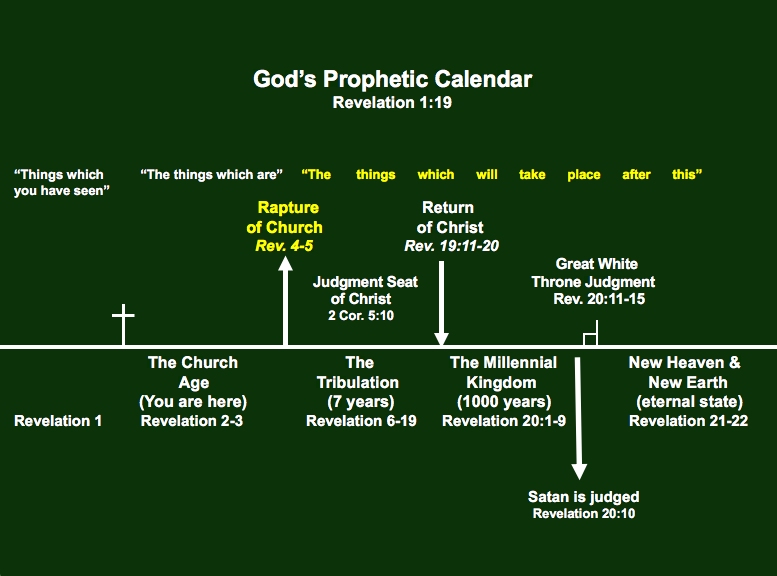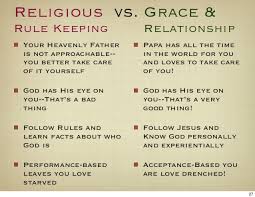In John 10:28-29, we discovered that believers in Jesus are secure forever because eternal life is a gift which can never be lost. But someone may say, “Since eternal life is free through believing in Jesus and cannot be lost, why would I want to live for the Lord? What is to keep me from living like the devil since I know I will go to heaven after believing in Jesus? There are several incentives for living a godly life after believing in Jesus for the gift of eternal life. We will look at four of them:
1. GRATITUDE: When a sinner believes in Christ alone for the forgiveness of his sins and the gift of eternal life, the most natural response is a heart full of thanksgiving. The Bible says, “We love Him because He first loved us.” (I John 4:19). When you are convinced God loves you no matter what and that His arms of grace are always open for you no matter how badly you fail or fall, you will want to do what He tells you to do out of gratitude and because you know He wants the best for you (2 Corinthians 5:15; Galatians 2:20).
For example, let’s say you are drowning in the ocean, and a man on the seashore hears your cries for help and swims out to save you from certain death. After he brings you safely back to shore, you ask him, “How can I ever thank you for saving me?” He replies, “You would have done the same thing for me,” and then he drives off on his motorcycle. Two weeks later you are driving your car down the highway and you notice the same man standing beside the road next to his motorcycle which has two flat tires. The man is frantically waving his hands to get you to stop, but you just wave at him and keep going. That, my friends, is no way to thank the man who saved you from drowning. Likewise, when we fail to live for the Lord, we are still saved, but that is no way to thank our Savior who saved us from an eternity burning in the lake of fire.
2. GOD’S DISCIPLINE: Just as an earthly father disciplines his wayward children, so God will discipline His disobedient child (Hebrews 12:5-11). It is possible for a believer to be more miserable living outside of God’s will than it would have been to remain a non-Christian. If a believer continues in sin long enough, God may even take his or her physical life (cf. I Corinthians 11:29-32). Knowing the price of sin in a Christian’s life ought to be a strong motivation for godly living. “For the wages of sin is death.” (Romans 6:23).
3. YOUR NEW IDENTITY: When a person believes or trusts in Christ for the gift of eternal life, God’s grace gives him a new identity or capacity to overcome sin and live for the Lord (cf. 2 Corinthians 5:14-20; I John 3:1-9). Romans 6:14-18 says, “14 For sin shall not have dominion over you, for you are not under law but under grace. 15 What then? Shall we sin because we are not under law but under grace? Certainly not! 16 Do you not know that to whom you present yourselves slaves to obey, you are that one’s slaves whom you obey, whether of sin leading to death, or of obedience leading to righteousness? 17 But God be thanked that though you were slaves of sin, yet you obeyed from the heart that form of doctrine to which you were delivered. 18 And having been set free from sin, you became slaves of righteousness.”
When we become Christians, we are under a new authority. We are now under God’s grace, not the law. When we realize and submit to Christ’s rule over us, regardless of our feelings, our sinful flesh progressively loses its domination over us, and the grace of God is activated in our lives. We then obey because of our relationship with Jesus. Some immature Christians might think that living under grace means they can go on sinning. But Paul refutes this thinking. If you are living under grace, you will actually keep the law. And if you don’t keep the law, it only proves you’re not operating under the grace of God. Christians obey the standard, but the motivation isn’t the standard. The motivation is God’s grace. The more believers experience the grace of Jesus, the more he or she wants to live in way that is consistent with his or her new identity in Christ.
At this juncture, I believe it is important to talk about sanctification. Sanctification is being “set apart” or made holy to God. The Bible alludes to pre-conversion sanctification whereby the Lord sets apart the unbeliever for salvation and/or service (Jeremiah 1:5; Acts 9:15; Romans 1:1; I Corinthians 7:14; Galatians 1:15; 2 Thessalonians 2:13; I Peter 1:2).
For the Christian, sanctification is realized in three ways. All believers are positionally sanctified when they first believe by virtue of being in Christ (I Corinthians 1:2; 6:11; Ephesians 1:7; Hebrews 10:10, 14). That is, they are completely and permanently set apart from their sin and shame, and placed into the body of Christ. God totally accepts the believer at the moment of faith in Jesus regardless of how much or little they manifest His holiness.
Christians are personally or progressively sanctified as they allow the Holy Spirit to guide their lives, and begin to produce the fruit of the Spirit (Luke 14:25-33; John 8:31-32; 15:1-8; 17:17; Romans 6:12-23; 8:1-17; Galatians 5:16-26; Ephesians 5:26; Hebrews 5:13-14; I Peter 1:15- 16; 2:1-3; 2 Peter 3:18). Therefore, obedience to the Word of God, while not necessary for obtaining everlasting life, is the essential responsibility of each Christian to grow in the Christian life (Romans 6:12-23; Hebrews 5:13-14; 1 Corinthians 2:14–3:4). However, the Bible does not teach that this obedience will be manifested in all believers. If a believer does not yield to the ministry of the Holy Spirit in his experience, failure will result, evidenced by sinful acts or even prolonged disobedience (1 Corinthians 3:1-15; 10:1-13; Galatians 5:16-21).
Christians will be ultimately sanctified when they become completely conformed to the image of Christ in His presence (Ephesians 5:27; Colossians 1:22; I John 3:2-3; Jude 24- 25). There will be no more sin in their words, thoughts, actions, or motives.
For example, the apostle Paul in writing to the church at Corinth, says, “To those who are sanctified (hagiazō) in Christ Jesus, called to be saints (hagios).” (I Corinthians 1:2). Paul calls them “saints” which means, “set-apart ones” (I Corinthians 1:2). He was not referring to their behavior because they were acting very immature and disobedient (I Corinthians 1:11-6:20; 11:17-32; et al.). He was obviously talking about their identity or their position in Christ, which was sourced in their spiritual birth. Paul calls them “saints”(positional sanctification) in chapter 1 and then challenges them to act like the saints they really are (progressive sanctification) in the remaining chapters of the book.
When the Corinthians were committing sexual immorality with prostitutes he questions their knowledge about their new identity in Christ, not their salvation (I Corinthians 6:13-20). Paul describes believers’ future resurrection bodies which will be “raised in incorruption” and “put on incorruption” (ultimate sanctification) to encourage Christians to remain faithful to the Lord in the present (I Corinthians 15:42, 53). Because Christians will receive future resurrection bodies that no longer yield to sin, they are to abound in the work of the Lord now knowing He will reward them for their faithfulness in the future (I Corinthians 15:58; cf. 3:8-15; 9:24-27).
4. ETERNAL REWARDS AT THE JUDGMENT SEAT OF CHRIST: The last book of the Bible (Revelation) provides an outline of future events (see picture) beginning with the current church age to the eternal state…
1. We are living in the Church Age which began at Pentecost (Acts2) and will end with the rapture or removal of the Church from the earth which could take place at any moment (John 14:1-3; I Cor. 15:51-52; I Thess.1:10; 4:13-5:11; Revelation 4-5). Knowing that Christ could come for us at any moment motivates Christians to live faithfully for Him so they are prepared to face Him as their Judge.
2. Soon after the Church is taken in the Rapture, seven years of Tribulation begin on the earth. This period begins when the Beast of Revelation makes a covenant with the nation of Israel (Dan. 9:26-27). This will be an awful time of death, disease, hunger, famine, earthquakes as never seen, warfare, entire seas turned to blood, darkness, scorching of the sun and multiple other judgments (Revelation 6-19). It will end when Jesus returns to earth with His Church and Christ will destroy His enemies (Revelation 17:12-14; Revelation 19:11-21). At that time, the Antichrist and False Prophet will be cast into the Lake of Fire (Revelation 19:20) and the Devil will be bound for a 1000 years (Revelation 20:2-3).
3. Then Jesus will reign as King over the entire earth for a thousand years from the city of Jerusalem (Zechariah 14; Revelation 20:4-6). This period is called the Millennium which means “one thousand.”
4. At the end of the Millennium God will destroy the entire creation (2 Peter 3:10). Every person who did not believe or trust in Christ alone for the gift of salvation will stand before God as He sits on the Great White Throne to judge each unbeliever according to their works to determine the degree of their punishment in the Lake of Fire (Revelation 20:11-15). Satan will receive his final judgment in the Lake of Fire at this time.
5. Then a New Heaven (Universe) and New Earth are created which are perfect and beautiful (Revelation 21-22). This will be the eternal home of believers in Jesus.
Knowing the future should motivate Christians to live for what is eternal and not what is temporary. Why? Because there is another Judgment. During the Tribulation, in heaven, Christians will give an account for all their work for Christ. While Christians will never be judged to determine their eternal destiny since they already have eternal life (John 5:24), they will face another kind of judgment to determine what if any rewards they will receive in Christ’s eternal Kingdom. In Revelation 4:4, 10-11, “the twenty-four elders” represent faithful (overcoming) believers in heaven who possess “crowns” (rewards) received at the Judgment Seat of Christ and will rule with Christ in His coming Kingdom (cf. 2 Timothy 2:12; Revelation 2:10b, 2:26-27; 3:5a, 3:11, 21). This Judgment is to motivate Christians to be faithful disciples who obey the Word of God. This is called the Judgment Seat of Christ.
God wants to reward all Christians for their faithfulness to Him at the Judgment Seat of Christ. “Therefore we make it our aim, whether present or absent, to be well pleasing to Him. For we must all appear before the judgment seat of Christ, that each one may receive the things done in the body, according to what he has done, whether good or bad.”(2 Corinthians 5:9-10). Paul was motivated to live a life that pleased the Lord knowing that he would appear before Christ at the Judgment Seat in the future to determine what if any rewards he would receive (Romans 14:10-12; I Corinthians 3:8-15; 4:5; 9:24-27; Revelation 22:12). Every Christian must appear before the judgment seat of Christ to answer to Jesus for the “good” and “bad” things he has done since becoming a Christian. The word “bad” (kakon) means “worthless, wicked, and evil.”
Is this scary for you to think about? Certainly! Even the apostle Paul was afraid to face the Judgment Seat of Christ. He writes, “Knowing, therefore, the terror of the Lord, we persuade men.” (2 Corinthians 5:11). Why would Paul fear the Judgment Seat of Christ? He was afraid of the possibility that his life will be revealed as one wasted and spent in selfishness rather than in devotion and obedience to Christ. Selfish living and wasted opportunities will bring more regrets when Jesus evaluates a believer’s life than most of us care to think about. Knowing this should be sufficient motivation for God’s people to aim to please the Lord (Colossians 3:23-24).
Knowing that we can earn eternal rewards should motivate believers to live for Christ now. Christians can earn heavenly treasure (Matthew 6:19-21) by giving a cup of cold water to God’s servant (Matthew 10:42), doing a charitable deed in private (Matthew 6:3- 4), praying in private (Matthew 6:6), and fasting in private (Matthew 6:17-18).
Christians who remain faithful in their service to Christ to the end of their lives will be given rewards that include wearing special white garments (Revelation 3:4-5), ruling with Christ (2 Timothy 2:12; Revelation 2:26-27; 3:21), eating the fruit of the tree of life (Revelation 2:7), eating hidden manna (Revelation 2:17), receiving a white stone engraved with your own special name that only the Lord and you will know (Revelation 2:17), and receiving a special entrance into the New Jerusalem (Revelation 22:14).
Christians can also earn a crown of rejoicing for making disciples (I Thessalonians 2:19), a crown of righteousness for loving the appearing of the Lord Jesus (2 Timothy 4:8), a crown of life for enduring trials and temptations until death (James 1:12), a crown of glory for faithfully shepherding others as a servant leader (I Peter 5:4), and an imperishable crown for living a disciplined life (I Corinthians 9:25).
By focusing on the Judgment Seat of Christ, Christians will develop a desire to please God rather than men. Because Christ is first in the life of a disciple and could come back at any moment, a disciple should seek to win as many people to Christ as possible and become more like the Judge who will evaluate his or her life at the Judgment Seat.
Knowing we have eternal life which can never be lost does not give Christians a license to sin or live like the devil. God did not save us to live for ourselves, but for Him who died and rose from the dead on our behalf (2 Corinthians 5:15). We have looked at several motivations to live for Jesus untill we go to be with Him in heaven.
I will close with some thoughts from Dave Breese in Living for Eternity said, “The child of God is a creature of eternal destiny. For him no day is without consequence, and no fleeting moment can be called incidental or unimportant. The hours he spends and the decisions he makes have implications that carry on into eternity. What he does today will matter a thousand years from today.” (Larry Moyer, Free And Clear: Understanding & Communicating God’s Offer of Eternal Life [Grand Rapids: Kregel Publications, 1997], pg. 145).








